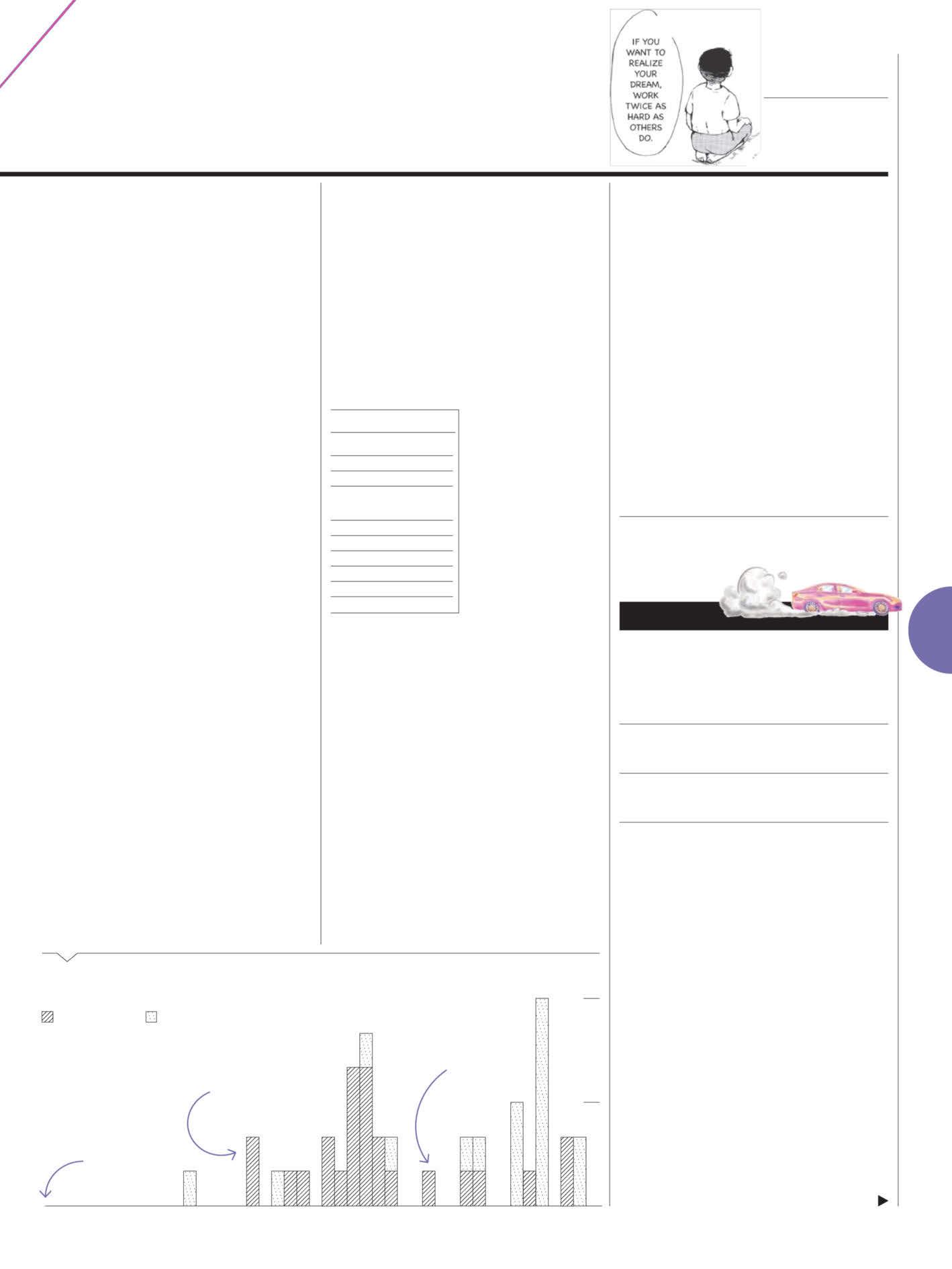
4 minute read
With Ferrari on the exit ramp, Fiat Chrysler buffs up Maserati
Briefs: Macy’s star— real estate; Watchman
on a roll 23
Advertisement
Japan,” according to the comic book.
Nidec employs about 128,000 people globally. Corporate executives such as SoftBank Group founder Masayoshi Son seek Nagamori’s advice about acquisitions and management. The CEO has met with such leaders as Prime Minister Narendra Modi of India, where Nidec recently built a factory and has four more under way. Executives polled last fall by Nikkei BP, an influential Japanese business publication, voted Nagamori the country’s best CEO.
He looks the part, except maybe for the neon-green ties, the color of the company’s flashy logo. The iconoclast in him comes out as soon as he opens his mouth. “In the early days, we had no choice but to hire rejects,” he says in his folksy Kansai dialect. “Nobody else would come. But we trained the hell out of them, and they became great.” Employees who’ve graduated from top business schools such as Harvard and MIT are incompetent when it comes to making profits, Nagamori has said, so he started an internal business school for his workers. His formula for turning around unprofitable companies: sell more stuff, cut costs. An inspirational poster in Nidec’s offices declares, “Do it now, do it without fail, and do it until it’s completed.”
In the 1990s and early 2000s, Nidec acquired Japanese companies that were on the edge of bankruptcy and purchased castoff units of Toshiba and Hitachi. As consumers bought tablets and smartphones, the market for hard-drive motors started to dry up. Nagamori went on another buying spree. Nidec has acquired 14 companies since 2010. One of the first deals was the purchase of the motor business of U.S. appliance maker Emerson Electric.
“Most people didn’t expect him to be able to do the pivot and find a new growth driver,” says Scott Foster, an analyst at Advanced Research in Tokyo. Nidec’s sales have increased tenfold since 1998, topping 1 trillion yen, or about $8.4 billion as of March. The next target is 10 trillion yen by 2030. If Nidec reaches that, it will rank as one of Japan’s six biggest companies, larger than Sony The “3Q6S Policy” and Hitachi today. Nagamori, 70, has 3Q promised to stick • Quality worker around until Nidec • Quality company • Quality products • Seiri (Keep things organized) • Seiton (Keep things available) 6S gets there: “I’m joking when I say I’ll keep going until I’m 120, but I plan • Seiketsu (Keep yourself clean) to keep doing it at • Seiso (Keep things clean) least until we hit the • Saho (Keep good manners) target.” • Shitsuke (Keep good discipline) In 2003, when Nidec bought Sankyo Seiki Manufacturing, an industrial robot maker based in the foothills of the Japanese Alps, the company was headed for a $280 million loss, its third bad year in a row. Twelve months after the acquisition closed, it had $178 million in profit. “The same people who were losing billions of yen—these same managers, same workers—they learned how to make money,” Nagamori says.
Not everyone finds working at Nidec so magical. Setsuo Matsui, who retired in 2010 after 42 years at a Sankyo factory in Nagano, says that after Nidec bought the company, Nagamori demanded that workers come in early every day to clean the facility; vacation was discouraged, and a chill came over the place. Matsui
He Knew He Was Right
Major completed acquisitions by Nidec
Based in Japan Based elsewhere
From 1989 to 2000, 18 of the 21 acquired companies were based in Japan
Since 2001, 13 of the 19 target companies have been based abroad
6
3
Nidec founded
still remembers the unpaid Sunday he spent at a training session on office manners. Nagamori ordered that everyone learn how to bow properly. “I didn’t feel comfortable claiming overtime or taking time off,” Matsui says. “Neither did anyone else.”
After the acquisition of a German water pump maker closed in February, Nagamori traveled to Merbelsrod, Germany, to tour the plants and offices. He was looking for dirt and grime, walls that needed painting, anything to be cleaned up. “There was a lot that could be improved,” he says. “It made me happy to see it. I’m always disappointed if I don’t see anything that needs fixing.” —Jason Clenfield and Masatsugu Horie
The bottom line Nidec's CEO says motivation, not smarts, was key to building one of Japan’s most profitable companies.
Automobiles Fiat Positions Maserati To Replace Ferrari
Marchionne: It will be the company’s most coveted luxury brand
“If we push the volume out, we will pay the price” Ferrari’s power, prestige, and profits have helped bankroll many of Fiat Chrysler Automobiles’ more pedestrian brands—Chryslers, Dodges, and Jeeps. Chief Executive Officer Sergio Marchionne is betting that the com pany’s Maserati sedans will fill the luxury gap when Ferrari is spun off later this year.
“Maserati becomes the most coveted, exclusive brand that we have,” Marchionne says. He plans to add a sport-utility vehicle and a coupe to its lineup and open 21 more dealerships across the U.S. Maserati’s reputation for performance is well-established, and luxury autos are selling briskly in the U.S. But the market is crowded, with BMW, Mercedes-Benz, Lexus, and Audi the four top-selling brands in the U.S.
Fiat bought 50 percent of Ferrari










